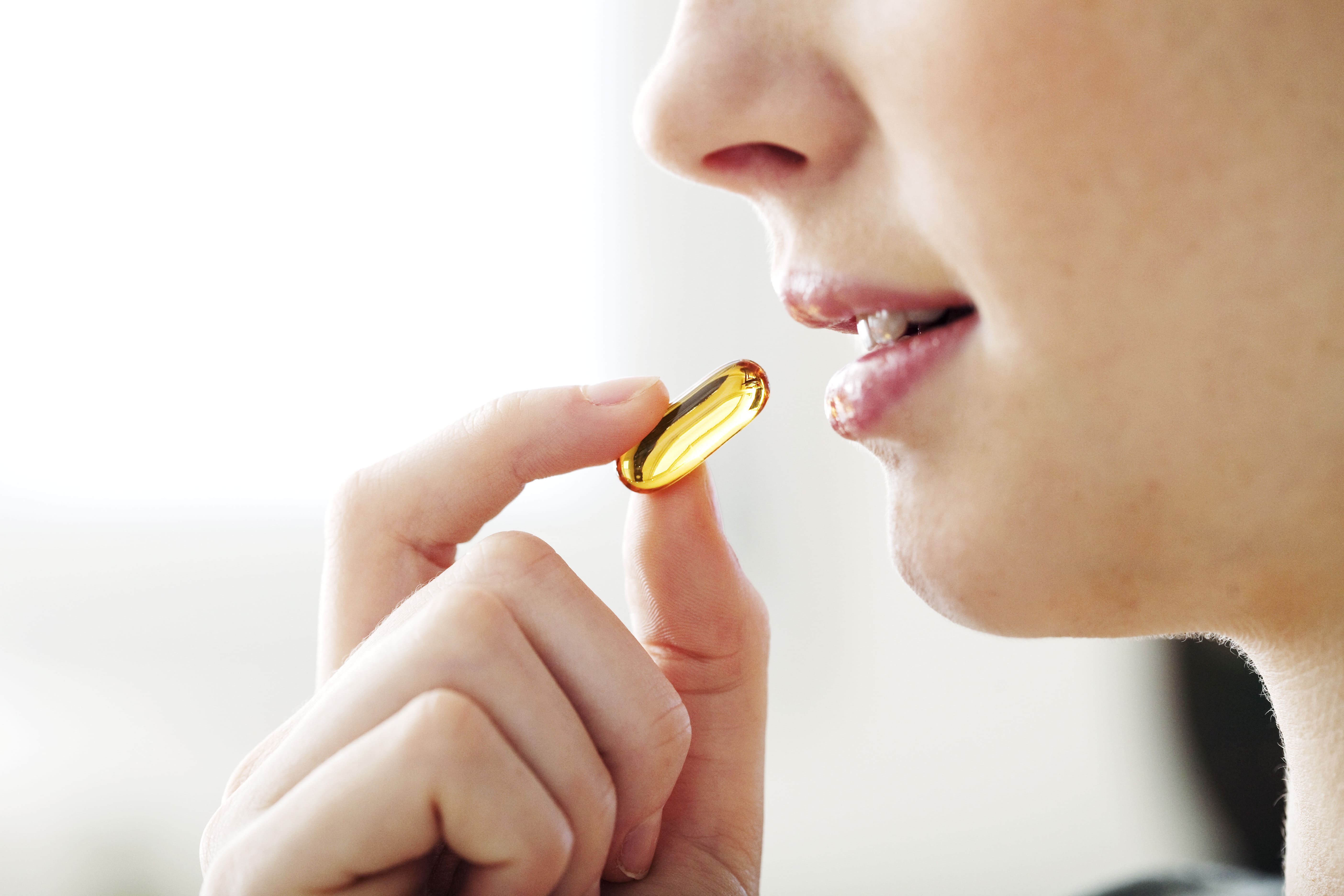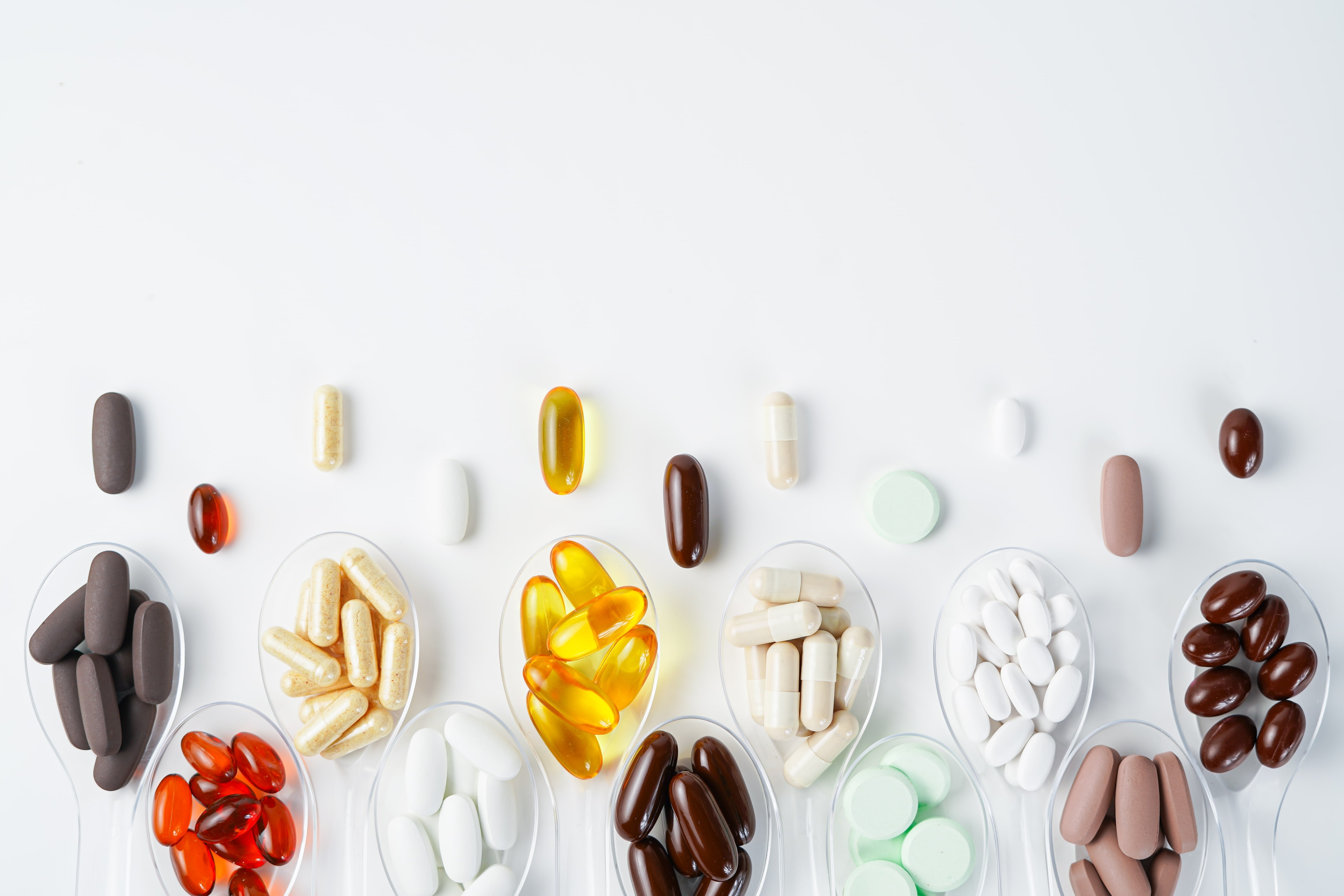A Nutritionist Recommends The Supplements You Need in Your 30s and Why
Last Updated: 24 November 2025

Your 30s are a pivotal decade for laying the foundation for long-term health. During this time, the body undergoes subtle yet significant changes, including a slower metabolism, shifts in hormone balance, and early signs of nutrient depletion due to stress, lifestyle, or environmental exposure. Supplementation can play a powerful role in bridging nutritional gaps, supporting energy levels, protecting cellular health and improving overall vitality.
In this article, we explore the essential supplements to consider in your 30s, how they support health, and what to prioritise based on your lifestyle and biological needs. These insights are provided by Vivere's Head of Nutrition, Yusra Serdaroglu Aydin, a registered dietitian with a background in nutrition, food engineering and culinary arts. Her approach is grounded in science and shaped by a strong understanding of personalised nutrition and the human microbiome, making this guide both practical and evidence-based.
Key Takeaways
Your 30s are a crucial time to establish nutritional routines that protect long-term health, particularly around energy, hormones, immunity and stress.
Omega-3s, vitamin D, magnesium, collagen and B-complex vitamins are foundational supplements that support brain health, skin repair, metabolism and resilience.
Gut health becomes more important in your 30s, making high-quality probiotics and prebiotic fibres valuable for digestive balance and immunity.
Stress-reducing nutrients such as adaptogens can improve mood, mental clarity and sleep quality.
NAD+ levels decline with age, and supplementation can help support energy metabolism, cellular repair and cognitive function.
Why Supplementation Matters in Your 30s
Many people in their 30s feel they are in the prime of life, but underlying biological shifts often go unnoticed until symptoms like fatigue, poor sleep, low mood or skin issues begin to surface. Nutrient demands increase due to work stress, exercise, parenting or chronic low-grade inflammation from processed diets and environmental toxins.
Food remains the foundation of good health, but the diet may not meet all micronutrient needs. Soil depletion, modern food processing and inconsistent eating habits often result in shortfalls that can affect health and accelerate ageing [1]. Supplements, when chosen wisely, offer targeted support to counteract these deficiencies.

Essential Supplements for People in Their 30s
1. Omega-3 Fatty Acids (EPA & DHA)
Omega-3s are crucial for heart, brain and joint health. They also play a protective role against inflammation, which can accumulate from work stress, intense exercise or environmental exposure [2].
While oily fish like salmon and sardines are great sources, many people fall short of the recommended intake. Supplementing with high-quality fish oil or algae-based omega-3s can improve concentration, mood, skin hydration and cardiovascular function.
2. Vitamin D3 with K2
Vitamin D supports immunity, bone health, hormone regulation and mood. In the UK, vitamin D deficiency is common due to limited sun exposure, especially during autumn and winter [3].
When taken alongside vitamin K2, which directs calcium to bones rather than arteries, vitamin D3 becomes even more effective in maintaining healthy bones and cardiovascular health [4].
3. Magnesium
Magnesium is involved in over 300 enzymatic reactions, including muscle relaxation, sleep regulation, nerve function and blood sugar control [5]. Stress, caffeine, alcohol and intense physical activity all increase magnesium losses.
Many people are mildly deficient, which can contribute to anxiety, muscle cramps, fatigue and poor sleep.
4. B-Complex Vitamins
B vitamins, particularly B6, B12 and folate, are essential for energy production, brain function, red blood cell formation and detoxification. These nutrients can become depleted from poor sleep, alcohol, stress or medications like the oral contraceptive pill [6].
A balanced B-complex supplement can support hormonal balance, mental clarity and metabolic resilience.
5. Collagen with Vitamin C
In your 30s, collagen production begins to decline, which can affect skin elasticity, joint health and connective tissue strength. Supplementing with hydrolysed collagen peptides supports skin hydration, reduces fine lines and aids muscle recovery [7].
Vitamin C enhances collagen synthesis and provides antioxidant protection, making the combination especially effective for skin, tendons and gut lining.
6. Probiotics and Prebiotics
Gut health underpins immunity, digestion, skin health, mood and weight regulation. In your 30s, supporting a balanced gut microbiome becomes more important, especially if you’ve had antibiotics, chronic stress or irregular eating habits [8].
Probiotics are live beneficial bacteria that help balance the gut microbiome, while prebiotics are fibres that feed these microbes and support their growth. Together, they improve digestion, enhance nutrient absorption, regulate immunity and positively influence mood and skin health. Supplementing both can help restore microbial diversity.
7. Supplements for Stress Management and Mental Health
Stress is one of the most overlooked health disruptors in your 30s. Chronic stress increases cortisol, impairs sleep and depletes key nutrients [9].
L-theanine promotes relaxation without sedation [10].
Ashwagandha is an adaptogenic herb that lowers cortisol and supports resilience under chronic stress [11].
Rhodiola rosea can improve fatigue, mood and focus, particularly in high-stress work environments [12].
Lion’s Mane is a nootropic adaptogen known to support brain function, memory and nerve regeneration. It may also reduce mild symptoms of anxiety and depression [13].
8. NAD+ and Its Precursors
NAD+ (nicotinamide adenine dinucleotide) is a coenzyme essential for energy metabolism, DNA repair and healthy ageing. Natural NAD+ levels decline with age, contributing to fatigue, cognitive fog and reduced cellular function [14].
You can support NAD+ levels in two ways:
Oral precursors such as nicotinamide riboside (NR) or nicotinamide mononucleotide (NMN) help stimulate internal NAD+ production.
NAD+ injections, like those offered by Vivere, deliver pure NAD+ subcutaneously easily with an at-home injection pen.
NAD+ is especially helpful for individuals under high stress, with mitochondrial dysfunction or looking to support cognitive clarity and energy as they age.
Learn what the early research suggests for how NAD+ affects metabolism.
Are you new to NAD+ injections? If you answered 'yes', our beginner's guide is the perfect starting place for people interested in learning how a NAD shot can boost your energy levels, focus and optimise your longevity.
Specific Needs for Women in Their 30s
Hormonal shifts, menstrual health and potential pregnancies influence nutritional requirements.
Iron: Essential for energy and red blood cell production. Women with heavy periods or low iron stores may need supplementation [15].
Folate (B9): Critical for DNA synthesis and foetal development, especially for pregnant women [16].
Calcium: Bone density peaks in your 30s. If dairy intake is low or if you follow a plant-based diet, a calcium supplement paired with vitamin D3 and K2 can support bone strength [17].
Creatine Monohydrate: For those active in strength or endurance training, creatine supports muscle recovery, performance and even cognitive function [20].
Specific Needs for Men in Their 30s
Men in their 30s benefit from supporting testosterone levels, muscle maintenance and cardiovascular health.
Zinc: Key for testosterone production, immune resilience and skin health. Exercise, sweating and alcohol can deplete zinc levels [18].
CoQ10: A mitochondrial coenzyme that supports heart health and energy metabolism, particularly useful for men under high physical or mental strain [19].
Creatine Monohydrate: For those active in strength or endurance training, creatine supports muscle recovery, performance and even cognitive function [20].
Gut Health as the Foundation
Your microbiome influences nutrient absorption, inflammation, immunity and even your body’s ability to synthesise key vitamins like B12 and K [21]. As you age, microbial diversity may decline without proactive care.
Vivere’s gut microbiome test can reveal imbalances, low bacterial diversity or dysbiosis markers that guide smarter supplement strategies. Rather than guessing, personalised data can uncover exactly what your body needs.
Learn more about the gut-brain connection and how your gut can influence your brain.
Discover how factors such as genetics, diet, lifestyle, age, mode of birth, antibiotic use and more can shape your microbiome and simple tips for how you can optimise it.
Nutritionist's Corner: Final Thoughts
“Your 30s are a time to invest in your long-term well-being by making thoughtful, informed choices about your nutrition. Supplements can play a pivotal role in supporting energy, brain function, immunity and hormonal balance, especially when tailored to your personal needs. As a dietitian, I encourage people to think of supplements as part of a larger health strategy, one that begins with knowing your body and its needs. With tools like microbiome testing and expert guidance, you can take control of your health and build a foundation that supports you for decades to come.”
"In our 30s, many of us begin to notice we’re not quite as resilient as we were in our 20s, making it a key time to invest in long-term health. While a balanced diet should always be the foundation, supplements can play a valuable role in bridging nutritional gaps. Testing for potential deficiencies is important, ensuring supplements are tailored to your needs rather than taken blindly".
Vivere helps you take control of your health with personalised insights from our state-of-the-art gut microbiome test for UK customers, nutritional guidance, science-backed supplements and expert support. Sign up today and start living better, for longer.
Sources
[2] Dietary omega-3 fatty acids aid in the modulation of inflammation and metabolic health - PMC
[3] Vitamin D - NHS
[4] Proper Calcium Use: Vitamin K2 as a Promoter of Bone and Cardiovascular Health - PMC
[5] Magnesium - Health Professional Fact Sheet - NIH
[6] B Vitamins and the Brain: Mechanisms, Dose and Efficacy—A Review - PMC
[8] Gut Microbiome: Profound Implications for Diet and Disease - PMC
[10] How does the tea L-theanine buffer stress and anxiety - ScienceDirect
[14] The Role of NAD+ in Regenerative Medicine - PMC
[16] Folic Acid Supplementation and Pregnancy: More Than Just Neural Tube Defect Prevention - PMC
[17] Calcium and Vitamin D: Skeletal and Extraskeletal Health - PMC
[18] Correlation between serum zinc and testosterone: A systematic review - PubMed
[19] Coenzyme Q10 in Cardiovascular and Metabolic Diseases: Current State of the Problem - PMC
Author

Yusra Serdaroglu Aydin, MSc RD
Head of Nutrition and Registered Dietitian
Yusra is a registered dietitian with a multidisciplinary background in nutrition, food engineering, and culinary arts. During her education, her curio...
Peer Reviewed by

Cat Fullbrook, ANutr
Nutritionist
Cat is an Associate Registered Nutritionist with specialist expertise in weight management and a strong focus on gut health and the microbiome. With a...